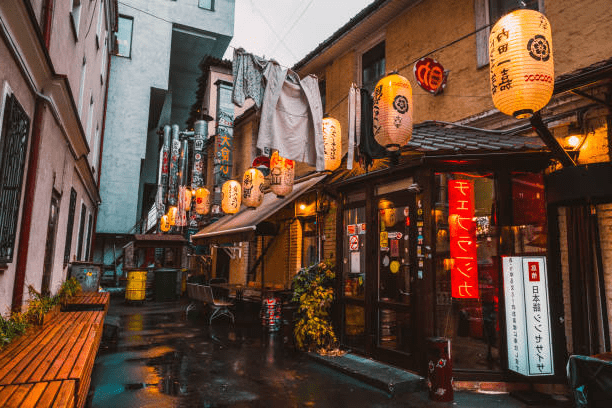New to the jet-setting world, Lysette Peterson eagerly embraced her newfound passion for travel. Armed with her camera and a thirst for adventure, she soared to distant horizons, capturing the essence of each destination in vivid snapshots. From bustling cityscapes to remote tropical paradises, every journey fueled her wanderlust. With wide-eyed wonder, she navigated through airports and foreign streets, immersing herself in diverse cultures and landscapes. Despite occasional challenges, her enthusiasm remained unbridled, fueling a desire to explore every corner of the globe. Lysette, a novice in the realm of jet setters, embarked on a journey of discovery with boundless zeal.
Traveling to new places and experiencing different cultures can be an exciting and eye-opening adventure. However, for newbie jetsetters, the journey can sometimes be fraught with linguistic mishaps and hilarious misunderstandings. This article delves into the humorous side of being “Lost in Translation” and the invaluable lessons these experiences teach us.

Lost in Translation: The Hilarity of Linguistic Mishaps!
One of the most amusing aspects of traveling is the potential for linguistic misunderstandings. Imagine ordering what you believe to be a delicious local dish, only to be served something completely unexpected! It’s not uncommon for newbie jetsetters to find themselves in such comical situations. From mispronunciations to misinterpretations, language barriers can often lead to unexpected surprises.

For instance, in a bustling market in Tokyo, a well-meaning traveler once tried to ask for directions in broken Japanese. However, instead of inquiring about the nearest train station, his phrase unintentionally meant “Where is the nearest cat café?” The confused vendor, not knowing about the existence of cat cafés, directed him to a local pet store instead! Such linguistic mishaps not only leave us laughing but also create unique memories that we cherish for years to come.
Examples of Common Travel Mishaps
Language barriers can lead to numerous amusing encounters. Here are some common examples that reflect the hilarity of being lost in translation:
- Ordering Food: Mispronouncing a dish’s name can lead to receiving something entirely different than expected. A traveler might order “fish tacos” but end up with “fish cakes” instead.
- Directions Gone Wrong: Asking for the “bathroom” in some countries can lead to confusion and laughter, as the word may sound similar to “bar” or “baker” in another language.
- Shopping Confusion: In markets, asking for a “cheap” item can sometimes be interpreted as asking for something of low quality, leading to unexpected prices.
From Embarrassment to Enlightenment: Lessons Learned Abroad!
While linguistic mishaps may initially cause embarrassment, they often lead to valuable lessons and personal growth. Getting lost in translation can help us become more adaptable, patient, and open-minded individuals. It teaches us to embrace the unexpected and find humor in the face of adversity. These experiences also highlight the importance of effective communication and the need to bridge the gap between different cultures.
The Growth Mindset: Embracing the Unexpected
Travel often throws curveballs that can test our ability to adapt. When faced with language barriers, newbie jetsetters frequently discover that the key to overcoming these challenges lies in maintaining a positive attitude. A traveler who finds humor in their miscommunications is more likely to enjoy their journey and learn from their experiences. Here are some ways to embrace unexpected challenges:
- Stay Calm: When faced with a misunderstanding, take a deep breath and remind yourself that it is all part of the adventure.
- Learn a Few Key Phrases: Knowing basic phrases in the local language can go a long way in easing communication and showing respect for the culture.
- Use Non-Verbal Communication: Gestures, facial expressions, and drawings can help convey your message when words fail.
Building Connections Through Misunderstandings
Moreover, being lost in translation can lead to meaningful connections with locals. When faced with language barriers, newbie jetsetters often rely on non-verbal communication, using gestures, facial expressions, and even drawings to convey their message. These efforts not only elicit smiles and laughter but also foster a sense of connection and understanding. It’s these moments of genuine human interaction that truly make the journey worthwhile.
For example, a traveler in Italy may struggle to ask for directions to a historic landmark. Through a combination of pointing, miming, and a friendly smile, they might not only get the directions they need but also strike up a conversation with a local who shares tips about hidden gems in the area. Such interactions enrich the travel experience and create lasting memories.
Embracing the Journey: Laughter and Learning

So, the next time you find yourself in a linguistic pickle while navigating the globe, remember to embrace the hilarity of the situation. Whether it’s a mispronounced word or a misunderstood phrase, these linguistic mishaps are what make our travel experiences truly unforgettable. From the initial embarrassment to the eventual enlightenment, being lost in translation teaches us valuable lessons and creates lasting memories.
In conclusion, the journey of a newbie jetsetter is often filled with laughter, learning, and unexpected encounters. Each miscommunication serves as a reminder of the beauty of diversity in our world. So, pack your bags, embrace the unknown, and let the roaming follies of newbie jetsetters guide you on a journey of laughter and personal growth!
For more travel tips and adventures, visit our Travel Tips section and explore how to make the most of your journeys.

